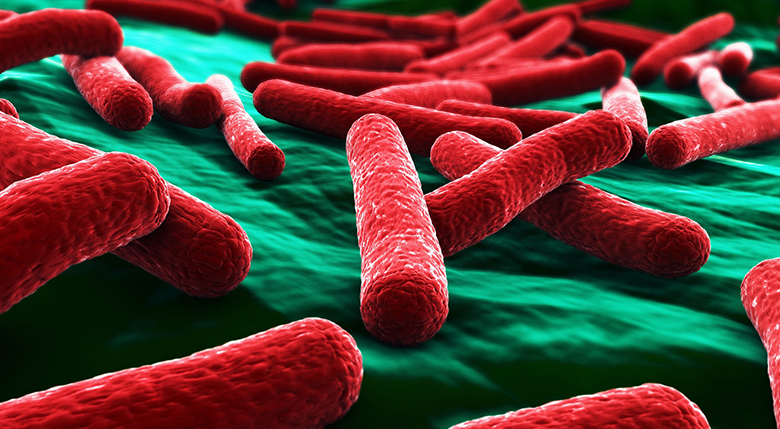E. Coli
Numerous illnesses and even deaths have been linked to consuming undercooked ground beef in recent years. Scientists have identified a rare but dangerous type of bacterium called Escherichia coli 0157:H7 that is responsible for this foodborne illness. Most strains of E. coli are normal inhabitants of the digestive tract, but this strain produces toxins in the intestine that are capable of causing serious illness. Cattle are believed to be the reservoir of this bacterium.
Symptoms of E. coli include severe abdominal cramps, followed by watery diarrhea that often becomes bloody. Victims also may suffer vomiting and nausea, accompanied by low-grade fever. In some people, particularly children and the elderly, the infection can lead to severe complications, including kidney failure, brain damage, strokes, and seizures. Symptoms appear after an incubation period of two to nine days, and the disease normally lasts four to ten days.
Although techniques to ensure food safety are constantly improving, raw foods will never be free of pathogens, and the role of the consumer in proper food preparation remains vital. You can guard against E. coli and other harmful pathogens by following these safety tips:
- Do not eat raw meat or rare ground beef.
- Thorough cooking destroys E. coli 0157:H7. Cook to at least 160 degrees F internal temperature. Use a meat thermometer to accurately test the internal temperature. Do not rely on color to determine if the meat is thoroughly cooked.
- Use hot, soapy water to wash hands well before and after handling raw meat and poultry.
- Wash and sanitize utensils, cutting boards, and work areas that have come into contact with raw meat and poultry.
- Do not serve or cut cooked meat or other foods on a platter that held raw meat.
- When eating out, SEND BACK any meat product that does not appear thoroughly cooked.
- Keep meat refrigerated at 41 degrees F or below. Use ground beef within one to two days after you purchase it, or freeze it at 0 degrees F.
- Even if you freeze the meat, you must thoroughly cook it prior to eating to destroy E. coli 0157:H7.
- Thaw meat in the refrigerator, not on the kitchen counter, where it is warm enough for bacteria to multiply.
- Store raw meat on a platter on the bottom shelf in the refrigerator to prevent meat juices from dripping onto other foods and contaminating them.
- Do not partially cook meat ahead of time. Bacteria can grow in partially cooked meat as it cools, even after you first put it in the refrigerator.
- Reheat leftovers to reach an internal temperature of 165 degrees F for at least 15 seconds.
- For additional information, see the Center for Disease Control web site.
- Call USDA’s Meat and Poultry Hotline at (800) 535-4555 for general information on food safety and food borne illness prevention.


